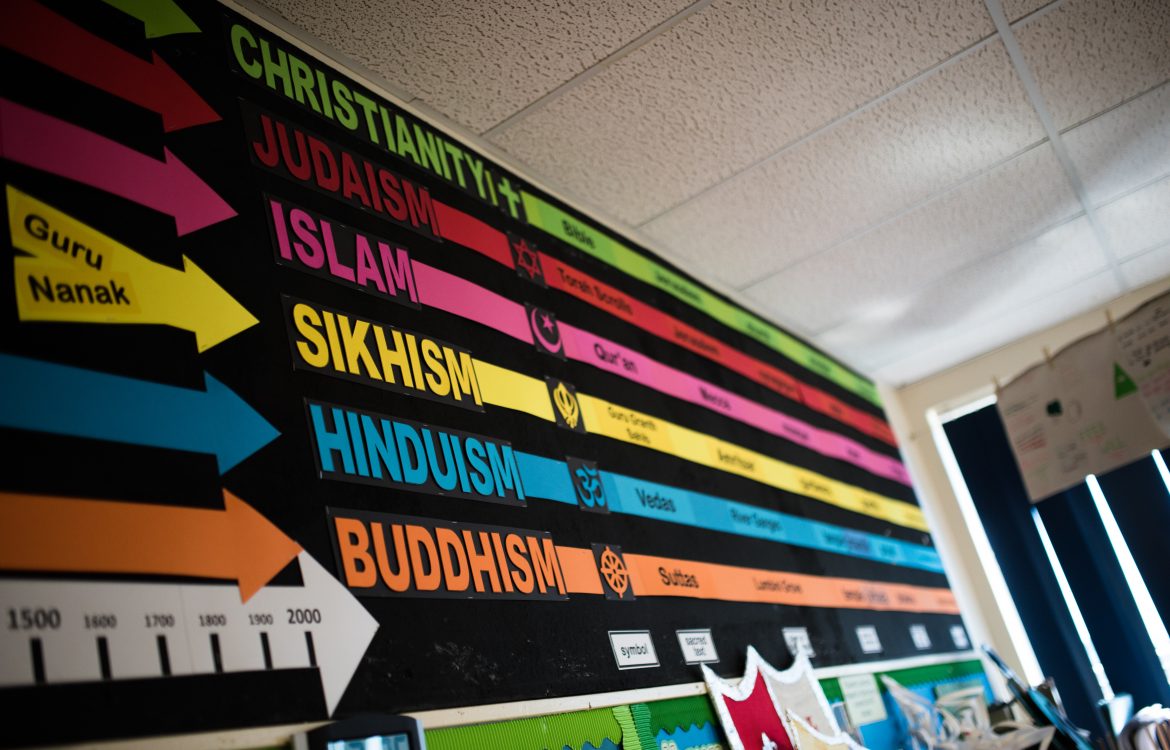
Religious Studies
Religious Studies is an engaging, stimulating and intellectually demanding course, which explores what it means to be a human.
You will study carefully chosen topics, which provide opportunities for discussion of fundamental questions of life, with reference to religious views. For example, are we truly free? Who decides what is moral and immoral (right and wrong)? By evaluating such challenging questions, and expressing views using reasoned arguments and religious teachings, you can enhance your capacity and desire to make a positive contribution to debates and decisions in society.
WHAT WILL YOU STUDY?
Paper 1 – Philosophy of religion and ethics
In this paper, we will explore the principles of philosophy such as, enquiry, questions and debate. We will then apply these to various issues such as, evil and suffering, religious experience, language, miracles, life after death.
In addition, there will be the opportunity to delve into and apply ethical theories to a variety of issues such as, freewill and moral reasonability, issues of animal life and human conscience.
Paper 2 – Study of religions and dialogues
In this paper, we will firstly consider the core beliefs and practices of Islam. This will developed further as we consider the Islamic perspectives on a variety of issues such as, religious expression, gender, sexuality, science, secularisation and religious pluralism.
In addition, there will be the opportunity to dialogue between philosophy of religion and religion. Here there is an opportunity to debate religious content through the medium of philosophy.
DURATION
2 Years
PROGRESSION
This subject offers transferable skills for a truly global citizen, which are highly regarded by universities and professions, such as the ability to understand the meaning of complex questions, empathy and the ability to understand people and take on board others’ views. It will help you develop an independence of mind and the ability to think for yourself. These are vital skills for all employers. This subject is also useful for careers in medicine, police, business, law teaching, journalism, counseling, charity work, civil service and the list goes on and on…
